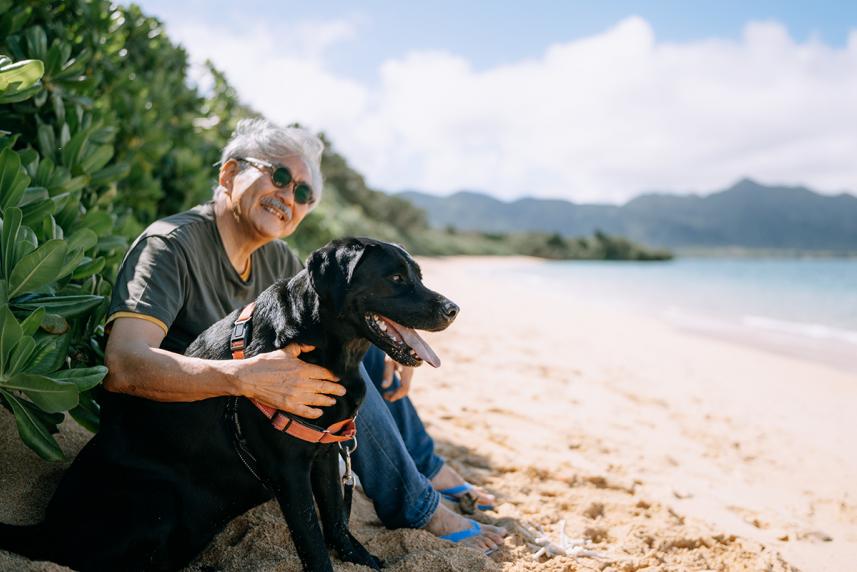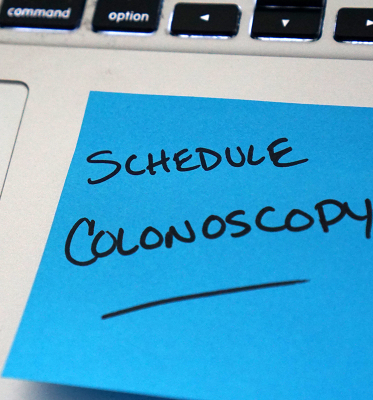Sneaky signs of colorectal cancer everyone needs to know
The symptoms of colorectal cancer can be hard to recognize. Here’s what to watch for and what to do about it.

Colorectal cancer can sneak up on you. You might not know right away that you have it. That’s because it often develops slowly and there aren’t obvious symptoms. And when colorectal cancer is finally diagnosed, it can be dangerous.
What exactly is colorectal cancer? It happens when clusters of cells, called polyps, grow out of control inside your large intestine (colon). Not all polyps are cancerous, but some of them can become so. While colorectal cancer is a health problem that mostly affects older adults, it can affect younger people, too.
People ages 45 to 75 who are at average risk should get screened regularly, according to U.S. Preventive Services Task Force. The American Cancer Society recommends a colonoscopy every 10 years. This gives doctors a chance to find and remove any polyps before they become cancerous. If you’re 76 or older, have a discussion about screenings with your doctor.
Medicare covers screening colonoscopies every 10 years for members and there is no minimum age requirement. For those who are considered high-risk for colorectal cancer, Medicare covers a screening colonoscopy every 24 months.
How can you tell if you have colorectal cancer? If you’re worried about a possible diagnosis, talk to your doctor. In the meantime, answer these five key questions.
Did you know HMSA members have access to personalized support to help you manage your health and well-being? Learn more here.
1. Are you feeling weaker or more tired than usual?
Fatigue, weakness, and shortness of breath could mean you have anemia (low red blood cell count), according to the ACS. And anemia can be one sign of colorectal cancer.
You might notice blood problems in the bathroom first. Maybe you’ll see blood in your stool (poop) or it’ll look darker than usual. That’s because colorectal cancer can often lead to blood in your digestive tract. Other times, your stool will look normal.
To figure out if you have anemia, your doctor can do a simple blood test. But if you’re experiencing any of the symptoms now, it’s a good idea to schedule an appointment with your doctor as soon as possible.
2. Are you feeling bloated or having abdominal discomfort?
If you eat a plate of your favorite food too fast, you might wind up feeling bloated or have a stomachache later. But bloating and stomach issues can also be a sign of colorectal cancer. Take note of issues such as:
- Cramps
- Dull aching sensation
- Feeling bloated every day
- Frequent gas
Talk to your doctor if you’re experiencing these symptoms for several days.
3. Are you losing weight without trying?
If you’re hitting the gym regularly and eating healthier, it can lead to weight loss. That’s normal.
But a noticeable drop in your weight when you’re not trying to lose weight can be a possible sign of a medical condition, including colorectal cancer. It can be related to other colorectal cancer symptoms, according to Johns Hopkins Medicine:
- Diarrhea can cause weight loss.
- Stomach pain can cut your appetite, so you don’t eat enough food to maintain your weight.
4. Do you see blood in your poop?
Many people assume that blood that covers their stool or is on the toilet paper is caused by hemorrhoids. It’s probably not a sign of colorectal cancer, but it’s a good idea to mention it to your doctor.
But if you see either of the following, call your doctor as soon as possible:
- Black or dark red blood that’s mixed in your stool.
- Very dark stool that looks like tar or is almost black.
A bright color could also be a sign of colorectal cancer. Sometimes, you may not see any blood at all even if cancer is present. There could be so little of it that only a test would detect it.

Learn more about your benefits for this important health screening. For plan information, view your Evidence of Coverage in My Account.
5. Has anything changed about your poop habits or consistency?
It’s worth paying attention to your stool. Make sure you can answer these questions:
- How often do you go?
- What does your stool usually look like?
- Has your schedule or consistency changed at all in recent days, weeks, or months?
Understanding your bowel habits can help you determine if you should be concerned about the possibility of colorectal cancer.
Next steps
Now that you’re more familiar with some of the symptoms of colorectal cancer, you’re probably wondering how you can get checked for it. Keep these tips in mind:
Understand the importance of screenings. Don’t wait until you have a problem. Instead, get screened regularly between the ages of 45 and 75. Your doctor will recommend how often to schedule screenings and what type of screening is best for you. If you’re 76 or older, discuss your screening needs with your doctor.
Pay attention to your current health and to your family’s health history. Your doctor may suggest that you have more frequent screenings if you have an inflammatory bowel disease or if your family’s health history includes colorectal cancer. Find out as much as you can about your family’s health history and be sure to share it with your doctor.
Don’t assume you have colorectal cancer. If you’re experiencing any symptoms, that doesn’t necessarily mean you have colorectal cancer. When in doubt, always check with your doctor to talk through your concerns and the appropriate steps to take.
Recommended reading: 5 key questions your doctor might ask at your annual wellness visit
Additional sources:
Screening recommendation: American Cancer Society
Anemia: American Cancer Society
Weight loss: Johns Hopkins Medicine
Colorectal cancer symptoms: Centers for Disease Control and Prevention
Colorectal cancer screenings: National Cancer Institute at the National Institutes of Health
Colonoscopy guidelines: U.S. Preventive Services Task Force


